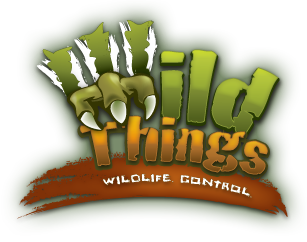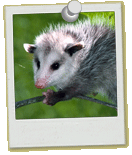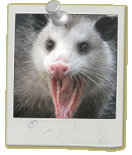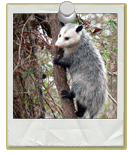OPOSSUMDidelphis Virginiana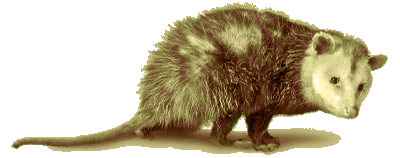
GENERAL INFO: The Virginia Opossum is the only marsupial natively found in North America. It is the largest of the opossum family (about the size of a large domestic cat) and it is a very opportunistic animal. They eat food left outside for household pets, unsecured food waste and other food that may be available. Opossums mate almost all year round and may have as many as three litters per year. Litters can exceed 10 young per litter. Perhaps best known for its habit of playing "possum", the opossum appears to play sick or dead as a defensive response to enemies. This reaction is involuntary, similar to fainting. As the opossum goes comatose, its body stiffens and a foul smell secreted from its anal glands enhances the charade by mimicking the smell of a dead animal. The opossum usually regains consciousness in about 40 minutes to 4 hours. THREAT: They nest in available spaces under decks, sheds, porches, foundation vents and other spaces around the house. If it's easy access, they'll use it. They may cause damage in your attic or crawl space (i.e. opossum excrement can leave a big mess), spread fleas to your pets, or die in your crawl space, wall or attic. Opossums are common carriers of the American Cat and Dog Fleas. They also host other parasites (mites, ticks, lice etc.) that can transfer to pets and humans. REMOVAL / PREVENTION: Like most of the other animals we deal with, they must be removed from the property and the areas they enter must be closed off. This can be achieved through live trapping and relocation. IMAGES: Click for larger image. GENERAL CAPACITIESPhysical Strength: Resilience:* Speed: Aggressiveness: Health Threat: Property Threat: Breeding / Propagation: *High due to exceptional immune system GEOGRAPHIC RANGE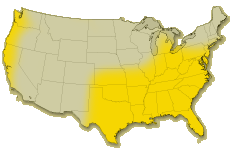
AVG. BREEDING RATE
DID YOU KNOW?Opossums are resilient. They are very resistant or immune to rabies, distemper, and various snake venoms, like the rattlesnake. They even keep Lyme disease in check, by killing the ticks responsible for its spread, despite being susceptible to tick, mite, and flea infestation. Despite their resilience, opossums have a short life expectancy, only living between 2-4 years. |
||
